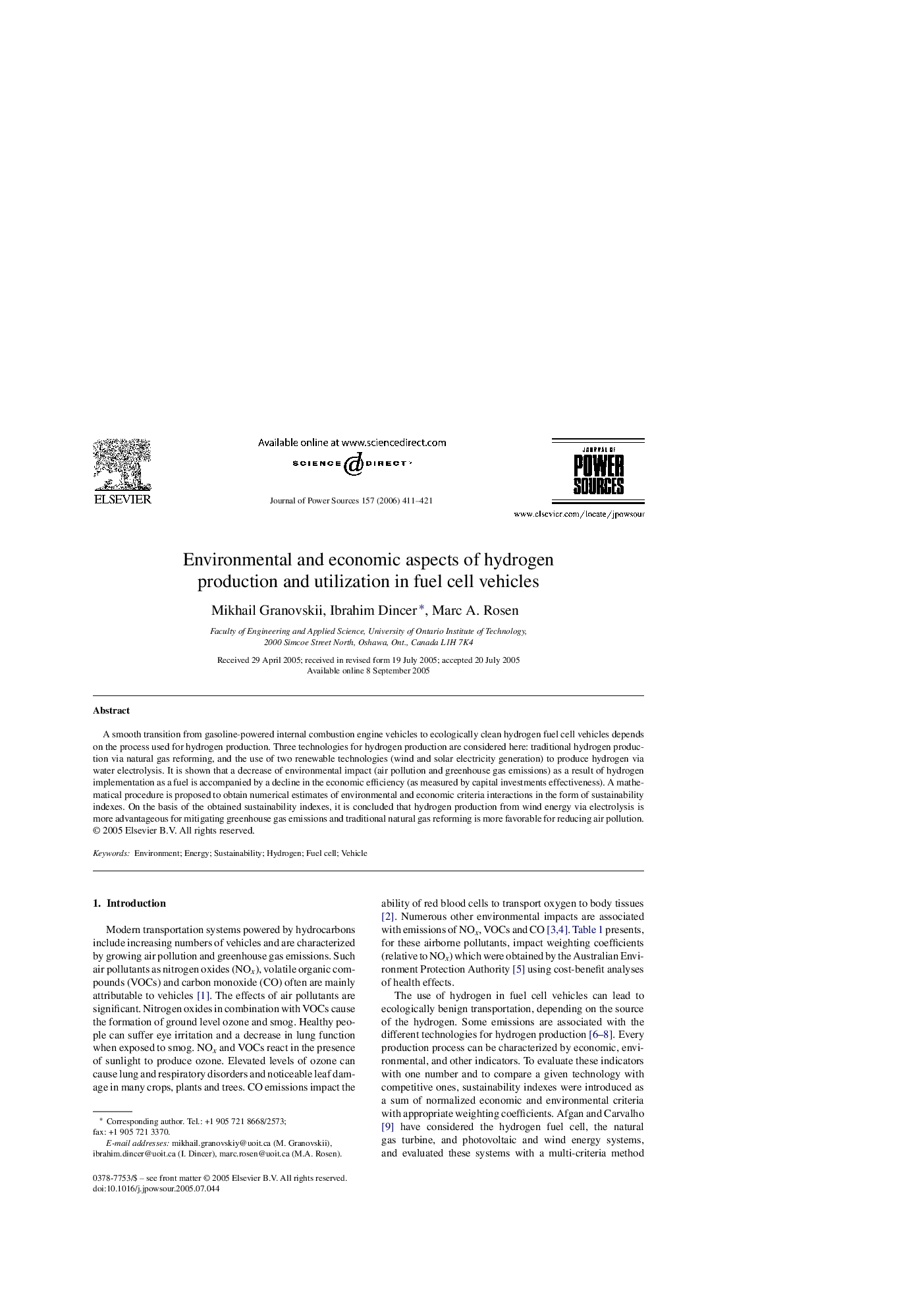| کد مقاله | کد نشریه | سال انتشار | مقاله انگلیسی | نسخه تمام متن |
|---|---|---|---|---|
| 1292688 | 973394 | 2006 | 11 صفحه PDF | دانلود رایگان |

A smooth transition from gasoline-powered internal combustion engine vehicles to ecologically clean hydrogen fuel cell vehicles depends on the process used for hydrogen production. Three technologies for hydrogen production are considered here: traditional hydrogen production via natural gas reforming, and the use of two renewable technologies (wind and solar electricity generation) to produce hydrogen via water electrolysis. It is shown that a decrease of environmental impact (air pollution and greenhouse gas emissions) as a result of hydrogen implementation as a fuel is accompanied by a decline in the economic efficiency (as measured by capital investments effectiveness). A mathematical procedure is proposed to obtain numerical estimates of environmental and economic criteria interactions in the form of sustainability indexes. On the basis of the obtained sustainability indexes, it is concluded that hydrogen production from wind energy via electrolysis is more advantageous for mitigating greenhouse gas emissions and traditional natural gas reforming is more favorable for reducing air pollution.
Journal: Journal of Power Sources - Volume 157, Issue 1, 19 June 2006, Pages 411–421